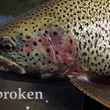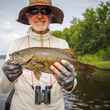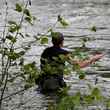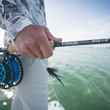Despite clear rights to stream access provided by their state's constitution, upheld halfway through the 20th century by their state Supreme Court and reaffirmed in 2014 by their Attorney General, New Mexicans are about to lose their right to fish a substantial portions of their state's public waters thanks to a new piece of legislation that New Mexico governor Susana Martinez is expected to sign into law by April 10. As a result, stream access advocates in New Mexico, neighboring Utah and beyond are asking anglers everywhere to send a clear message to the governor that she must use her veto power to put a stop to legislation that would strip the public of its right to recreate on many of its state's waters.
In 1945, a landmark case in New Mexico -- known as Red River Valley -- led to its Supreme Court clearly spelling out the rights of its citizens to recreational access to all waters. Citing their state's constitution in its decision, the court stated clearly that New Mexico anglers and others have the right to access fish, float or wade those waters, even where they are bordered on both sides by private lands. The decision noted, “The small streams of the state are fishing streams to which the public have a right to resort so long as they do not trespass on the private property along the banks.” Yet for decades, private landowners have stretched barbed wire fences across streams where they border national and state forest land and the State GameCommission has told anglers they could be cited for trespass if they fished waters that flow through private lands, ignoring the rights of the citizens of New Mexico's citizens to recreate on its waterways.
As recently as 2014, amidst challenges and questions about the incompatibility of access rights provided by the state constitution and regulations put forth by the State Game Commission and Department of Game and Fish, the state Attorney General issued an opinion further clarifying New Mexicans' right to fish their streams and rivers. In the opinion, the AG stated unequivocally that "The public’s right to use public waters for fishing includes activities that are incidental and necessary for the effective use of the waters. This includes walking, wading and standing in a stream in order to fish. Although, as Red River makes clear, a person may not trespass on private property in order to gain access to public waters, a person using public waters to fish, including incidental activities such as walking, wading or standing in a stream bed, is not trespassing.”




























